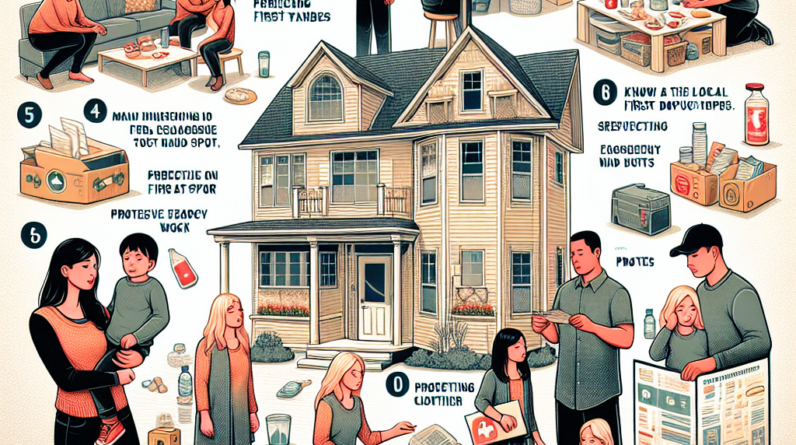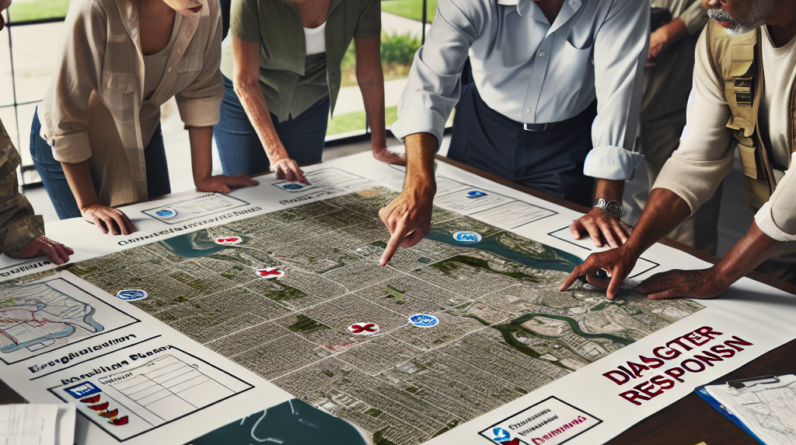Dealing with a power outage can be less stressful with the right preparation. This guide provides essential tips to help you stay safe and comfortable when the lights go out.
Prepare an Emergency Kit
# Gather Basic Supplies
Thinking about power outages brings to mind the importance of a well-stocked emergency kit. Start with basics like water, non-perishable food items, and a first-aid kit, which are essential. It’s best to store these items where you can easily access them in the dark. Aim to have supplies that will last you at least 72 hours. A battery-operated flashlight and spare batteries are indispensable. Including personal items such as prescription medications, crucial documents, and a backup power bank for your phone is also wise, ensuring you can call for help or stay entertained during the outage.
# Plan for Food Safety
Regarding food, it’s vital to think about safety when the power fails. Keep a cooler and ice packs handy to preserve perishables longer during outages. Minimize the frequency of opening your refrigerator and freezer; a fridge can keep items cold for about 4 hours, and a freezer can maintain its temperature for around 48 hours if unopened. If you expect a prolonged outage, consider alternative cooking options like a camping stove or an outdoor grill, and remember to prioritize safety by using them outside.
Stay Informed
During a power outage, staying updated is crucial. I recommend owning a battery-operated weather radio or installing an app that provides real-time updates on severe weather conditions. Pre-download crucial information and maps, as internet connections can be unreliable. Also, don’t forget to check on your neighbors. Sometimes, local updates from nearby residents can be very helpful, and it strengthens community ties.
Manage Your Power Needs
# Utilize Backup Power Sources
Investing in a reliable generator can be a lifesaver during power outages, enabling you to power essential devices and medical equipment safely. Always operate generators outdoors to prevent carbon monoxide poisoning. Portable power banks or solar chargers are also excellent for keeping smaller electronics charged. Remember to have extra batteries and chargers for other essential gadgets to keep everyone entertained and connected.
# Monitor Battery Levels
It’s essential to keep a close eye on the battery levels of your devices. Charge them fully before a storm is expected. Setting reminders can help ensure all devices are charged and ready. Prioritize device charging based on your needs, whether for communication or entertainment.
# Turn Off Unused Appliances
To prevent damage from surges when power returns, it’s wise to turn off and unplug non-essential appliances. Using power strips can help protect valuable electronics. It’s a simple preventative measure that can save a lot of trouble and expense later.
Stay Safe and Healthy
# Keep Alternative Light Sources Ready
LED lanterns and flashlights are safer and more reliable than candles, which pose a fire risk. Keep these and extra batteries readily available. If you use candles, place them away from flammable materials and out of reach of children and pets.
# Stay Hydrated and Comfortable
Keeping extra water for drinking is crucial, and don’t forget about your pets. Find ways to stay cool or warm without electricity, like using battery-powered fans or extra blankets, to maintain comfort during extreme temperatures.
# Check on Mental Health
Power outages can be isolating and stressful. It’s important to stay mentally healthy by keeping in touch with others and engaging in activities like board games. Take time to manage stress and maintain a positive outlook.
Conclusion
By preparing in advance and managing your essential needs during a power outage, you can handle the situation more effectively. Remember, preparedness can significantly enhance your safety and comfort.
FAQs
# 1. What should I include in my emergency kit for a power outage?
Include water, non-perishable food, a first-aid kit, flashlight, batteries, and necessary medications. Also, consider adding portable chargers and hygiene items.
# 2. How can I keep food safe during a long power outage?
Keep your fridge and freezer closed. Use coolers and ice packs for perishables, and plan for outdoor cooking if needed.
# 3. What is a reliable way to stay updated during an outage?
A battery-operated weather radio is essential. Also, ensure your phone is charged and emergency apps are pre-downloaded.
# 4. How can I ensure my electronics are safe during a power outage?
Turn off and unplug unnecessary appliances and devices. Use surge protectors for crucial electronics.
# 5. What should I do to manage feelings of anxiety during a power outage?
Stay connected with family and friends, engage in fun activities, and take moments for yourself if you feel overwhelmed.


